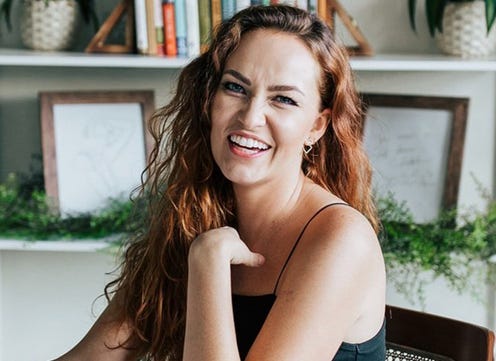5 Simple Ways To Be Kinder To Your Body
Being kinder to your body doesn’t mean pretending everything is perfect. It means shifting from a place of punishment to a place of care.
We live in a world that constantly tells us we need to shrink, tone, fix, and criticize our bodies. But what if, instead of treating your body like a problem to solve, you treated it like a friend who deserves care, respect, and kindness?
Being kinder to your body doesn’t mean ignoring your health or pretending everything is perfect. It means shifting from a place of punishment to a place of care—honoring what your body needs rather than forcing it into what you think it should be.
Here are five simple but powerful ways to start showing your body more kindness today—because you deserve that.
Take a Break From Mirrors
You were never meant to view your reflection in the way that you do now. Nowadays, we are constantly confronted with reminders of our appearance in nearly every reflective surface we come across—whether it’s mirrors, video chats, or photos. It's as if we’re always under a microscope, evaluating ourselves from every angle.
To break free from this cycle, try a simple experiment: for just one week, turn your mirrors around or cover them up. On video chats, swipe away your self-view so you’re not constantly looking at yourself. This small act can give you a chance to step back and rediscover how you feel, rather than how you look. Give it a try—just for one week.
Use Only Soft, Gentle Touches on Your Skin
When you touch your body, make it a habit to use soft, gentle motions. Avoid pinching, picking, or stretching your skin. Do not engage in any actions that could cause harm or send negative signals to your body. Your skin is a part of you that deserves compassion, and rough or harsh touches can send a message to your brain that your body is something to be fixed or criticized.
Instead, offer your skin and your entire body tenderness, and remember that every touch should be done with care and love.
Listen and Respond to Your Body Cues
Your body communicates with you constantly, whether you realize it or not. It might be telling you that it’s hungry, thirsty, or tired. Pay attention to these signals. When you notice these cues, take a moment to respond. If your body says it’s hungry, honor that feeling by eating something nourishing. If you’re feeling fatigued, allow yourself the rest you need.
This practice is all about tuning into your body and responding with care, saying things like, “I hear that you're thirsty, let me get you some water” or “I understand you're tired; it's time to rest.”
Offering these small acts of compassion will help create a healthier relationship with your body.
Find Movement or Exercise That You ACTUALLY Enjoy
When it comes to physical activity, it’s important to move in ways that actually feel good to you, rather than focusing on burning calories or achieving fitness goals like hitting the highest step count. Ask yourself: If your body could speak, what type of movement would it enjoy?
Would it prefer a gentle stretch?
Does a walk through nature sound good?
Maybe a dance session?
This is what we call intuitive movement—following your body’s cues and honoring what feels good, rather than forcing yourself into a routine that doesn’t align with your needs.
Say Something You’re Grateful for That Your Body Can Do
Take a moment each day to acknowledge and appreciate what your body is capable of. What has your body already done for you today? Perhaps it has helped you get out of bed, carry your belongings, or allow you to enjoy a walk.
Even the smallest movements and functions are worth celebrating. You don’t have to love every inch of your body, but recognizing its strength and the incredible things it does for you is an important step toward fostering a more positive relationship with it.
Remember: You Don’t Have to Love Your Body, But You Can Appreciate It
Your body is not something you need to “love” in the traditional sense. It's simply your vehicle, the vessel that carries you through life and enables you to experience the world. It deserves to be treated with respect, kindness, and compassion. If you find it challenging to embrace your body as it is, or you’re struggling with negative body image thoughts, you’re not alone.
There are trained professionals who specialize in body image counseling and can offer you guidance and support. If you’re looking for personalized help, consider speaking to one of our therapists who can help you navigate the process of accepting your body and learning how to be kinder to yourself.
To learn more about body image counseling click here. If you reside in Utah or Arizona, you can schedule a free 10-minute consult with one of our therapists by clicking here.
Shannon Ricks, LMFT, owns the group practice, Modern Eve, which offers therapy sessions to anyone located in Utah or Arizona. The practice focuses on helping people heal their relationships to food and their bodies by treating the underlying complex PTSD with IFS. She also has a Body Image Liberation course that is available to anyone in the world. And for therapists interested in this work, Modern Eve offers a therapist training program covering IFS, ACT, and the treatment of Eating Disorders.







